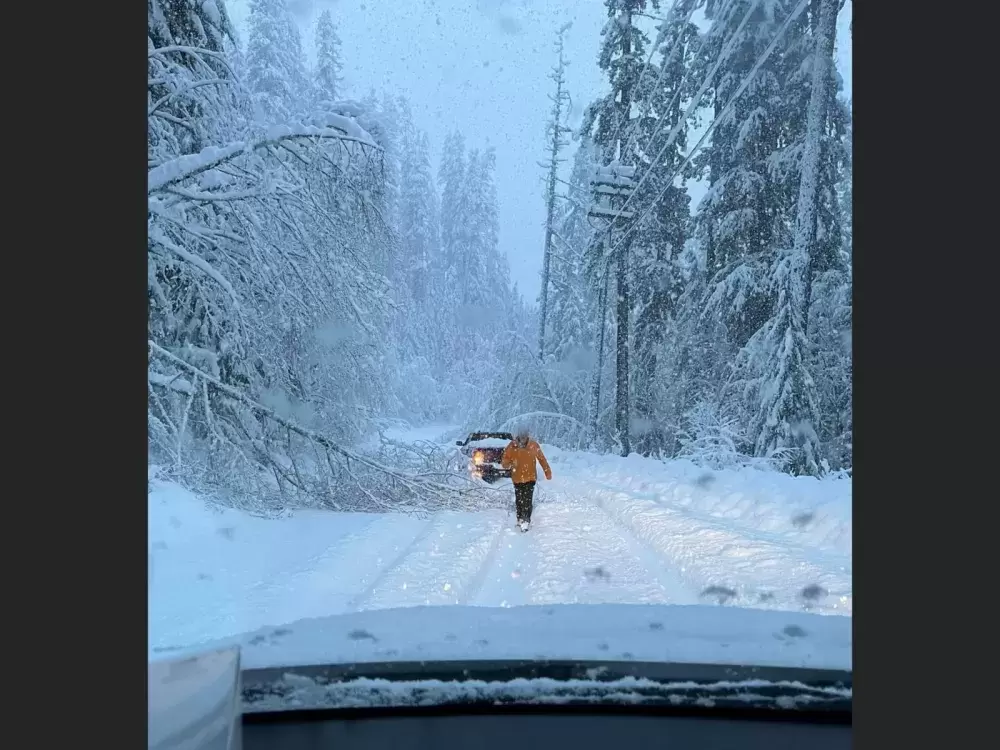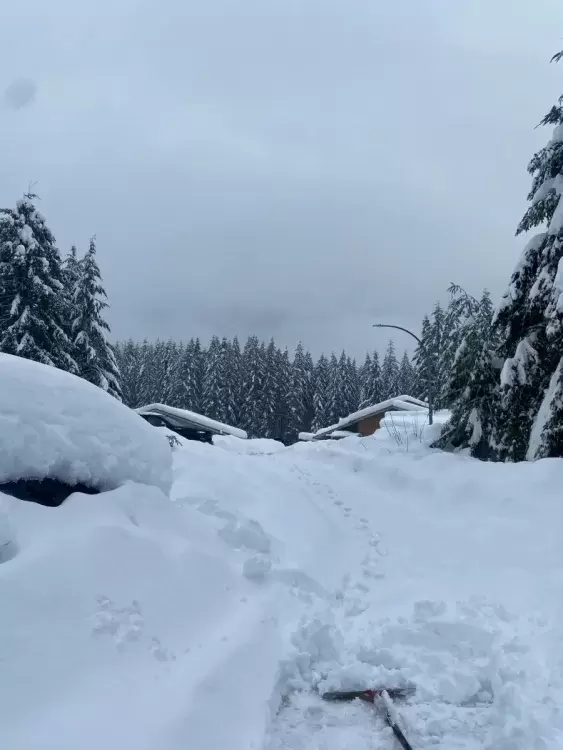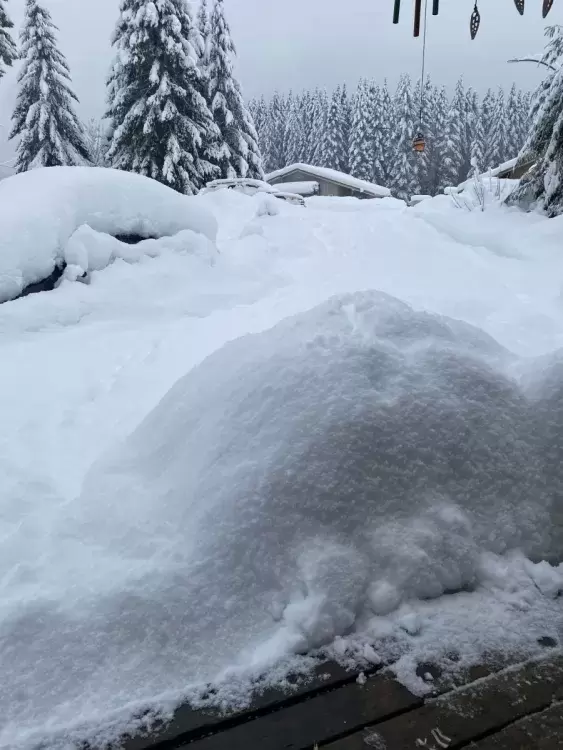The extent of an early January snowfall was clear to see this morning in Tsaxana, where the top of an upright baseball ball was all that could be seen from the feet that had amassed overnight.
Like many places in British Columbia, the Mowachaht/Muchalaht community near Gold River was buried under more than two feet of snow, forcing the First Nation to close its offices as residents struggled to get out from the heaviest dump they had seen in years.
Snowfall that began in the afternoon of Jan. 5, extending into the next morning, resulted in multiple power outages throughout Nuu-chah-nulth territory along the west coast of Vancouver Island. By the morning of Thursday, Jan. 6, 402 people in Nitinaht Lake, Bamfield and Anacla were without power due to a tree that fell under the heavy snow accumulation.
The power was still out by mid afternoon on Thursday, since electricity ceased at 9:44 p.m. the previous evening, said Nitinaht resident Crystal Amos.
“The power is still out, and it’s about the third time this week,” said Amos, who lives in the community with her four children. “I do have a generator, but I don’t have a wood stove, so it gets pretty cold. It can only heat up the front living room area with a small little space heater.”
Power outages are regular occurrences for the Ditidaht First Nation community each winter, said Amos.
“We also deal with floods quite frequently, sometimes both,” she said. “Usually each family takes care of the elders within their family, but I do believe the elders should be looked in a little more often.”
The storm also caused a transmission circuit failure for 517 people in the Yuułuʔiłʔatḥ First Nation, plus another 1,745 in and around the town of Ucluelet. Another circuit failure cut electricity to homes along Long Beach and in Tofino, affecting 1,983 hydro customers.
In Ahousaht a transformer blew at 8 a.m., leaving the Flores Island community without power until noon, while 711 in Zeballos, the neighbouring community of Ehatis and the nearby Nuchatlaht community of Oclujce were without power on Thursday morning.
Snowfall that began in late December had already compromised the power lines serving Zeballos, according to an update issued during the first few hours of the Jan. 5 storm.
“The continued heavy snowfall has caused extensive damage to the line serving customers in Tahsis and Zeballos,” announced BC Hydro. “We assessed damage using a helicopter yesterday (Jan. 4), and we began work in areas where it was safe to do so. As more heavy snowfall is expected, work progress will be dependent on the weather conditions and crews’ ability to safely access damaged areas. As a result, we expect these customers will be without power for at least another day.”
During the winter, the major cause of power outages is trees falling on power lines, says Ted Olynyk of BC Hydro media relations.
“Very heavy West Coast snow bringing trees down, that’s a problem,” he said, noting that when this occurs during a storm crews are sometimes forced to wait for conditions to ease before assessing damages. “The sad coincidence is that when you’re dealing with a storm event, the storm causes the outage, but you can’t fly up and do the inspection you want because the storm event prevents flying.”
Personnel regularly conduct surveys of power lines by helicopter and ATV to cite any potential hazards.
“Each year we deal with anything that looks like it could come in contact with our lines. Any time a tree could fail, we deal with that,” added Olynyk. “Unfortunately, a lot of times stuff that does come in contact with the lines is something that wouldn’t be identified. You can have big trees come down that cause us grief.”
The snowfall has also challenged access in and out of remote communities. Amos had to sleep in her truck earlier in the week during Nitinaht’s second power outage, as snow made the road to Lake Cowichan impassable for a grocery run. By Thursday afternoon she managed to get a ride to Port Alberni with her brother.
“The roads are plowed but they are not salted, so it’s slippery and they only have a single lane plowed,” Amos said, adding that the more than a foot of snow that amassed in Nitinaht is the most she’s seen over her 12 years in the village. “Right now it’s been a struggle to get out of the community to get groceries because we just have a tiny little general store that’s open four days a week.”
Electricity usage had already broken records before the Jan. 5 storm brought power outages. On Dec. 27, between 5 and 6 p.m. demand across B.C. reached 10,902 megawatts, breaking a record of 10,577 from the previous year.
It was during this cold snap that temperatures dropped remarkably low levels, including -17 Celsius in Port Alberni.
“BC Hydro has enough supply options in place to meet increasing electricity demand,” said BC Hydro spokes person Simi Heer in a press release. “However, if British Columbians want to help ease some of the demand on the system during peak times, we encourage shifting activities like doing laundry or running dishwashers to earlier in the day or later in the evening.”





